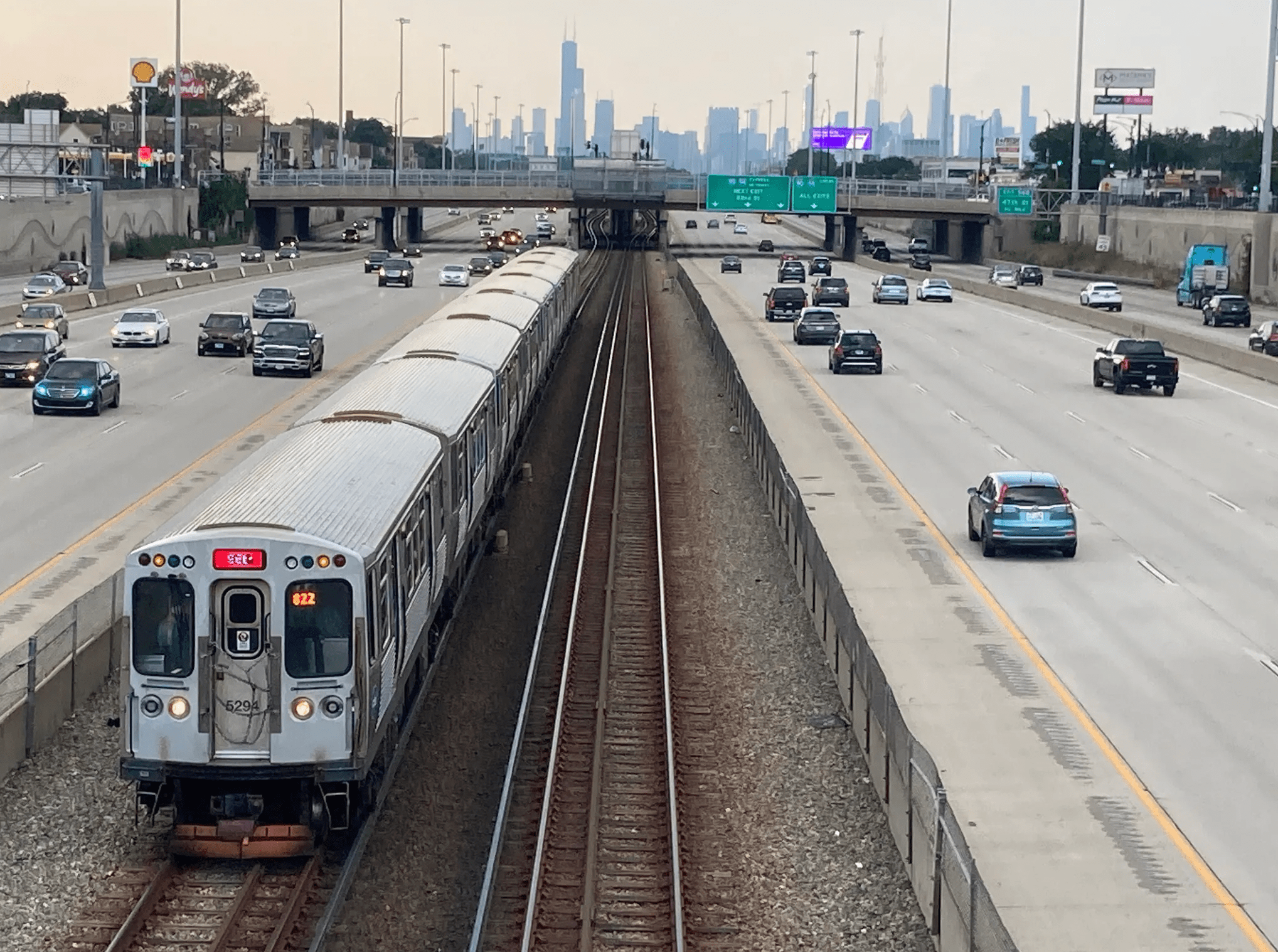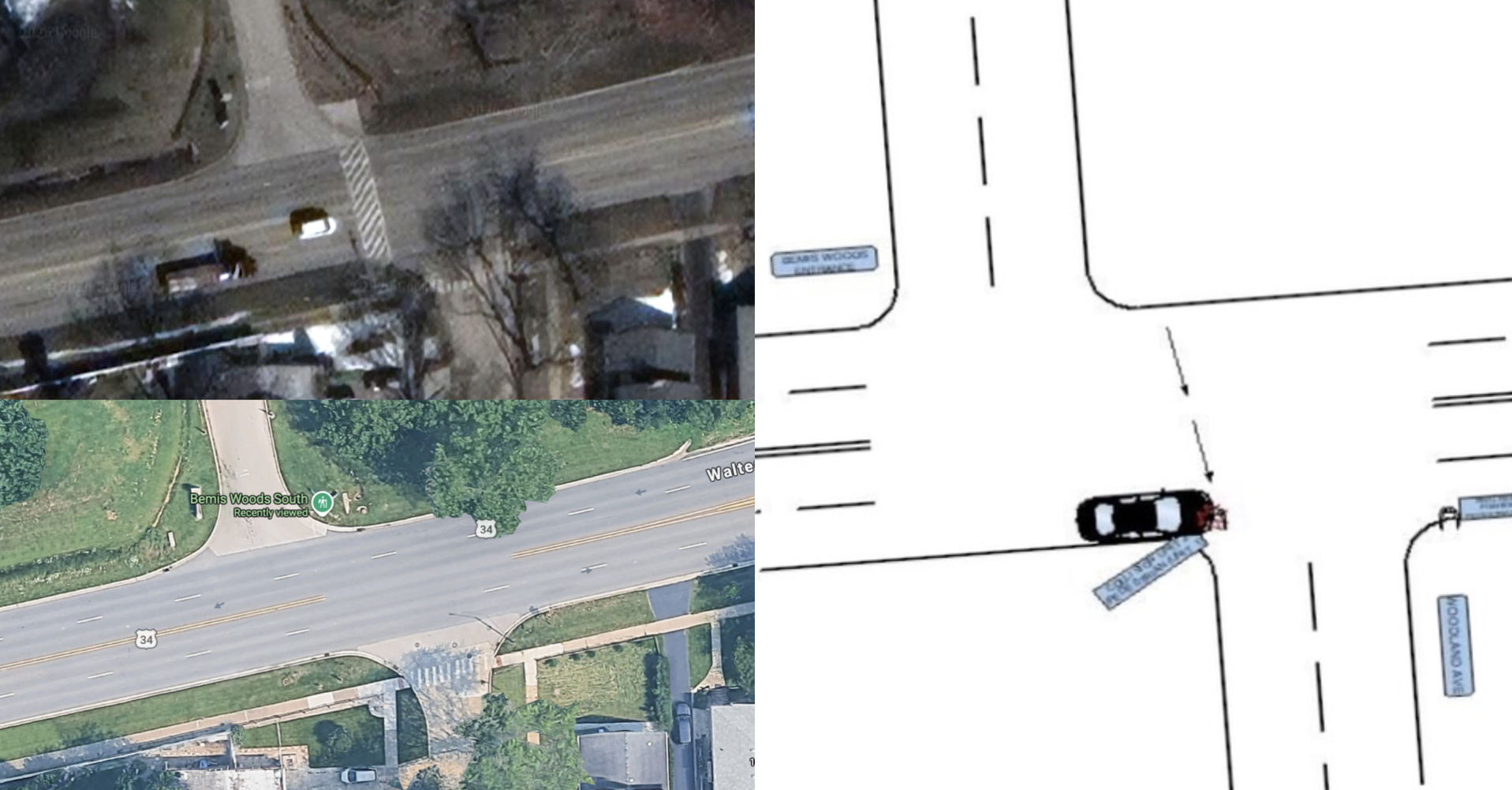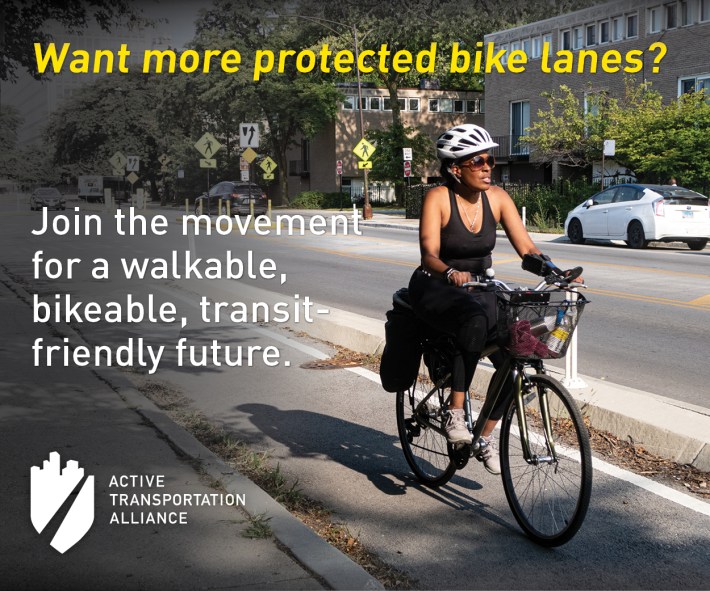
This has been a hectic week for Illinois lawmakers and Chicagoland transit professionals and advocates as we try to avert the prophesied $771 budget cliff. As I type this, we're only about 33 hours away from the end of the spring legislative session, Saturday at midnight. If bills aren't passed to fund and/or reform public transportation in our region, the result will be apocalyptic service cuts and layoffs next year. Therefore, Springfield had better step up soon or, as last week's Soldier Field performers AC/DC would say, we're on the "Highway to Hell"
However, there seems to be a lull in the action downstate right now. So I'll take this opportunity to address a separate-but-related issue: recent pieces from mainstream media pundits questioning the value of the Red Line Extension project and/or floating the idea of cancelling it.
These articles were partly sparked by a March 18 post on the blog A City That Works titled "The Red Line Extension's hidden costs" by transit advocate, researcher, and environmental policy analyst Nik Hunder. That piece takes a deep dive into the question of how the heck the cost of the rail initiative ballooned from $3.6 to $5.7 billion (the cost estimate recently provided to Streetsblog by a CTA spokesperson) in a matter of months.
Here are some of the recent newspaper articles that cite Hunder's work:
• Chicago Tribune, April 27: "Editorial: Chicago’s transit agencies want you to panic. They don’t explain the whole truth." The editorial board writes, "The Chicago Transit Authority now is spending a stunning $5.1 billion on the Red Line Extension." Oddly, later in the piece they state the cost as $5.75 billion.

• Ed Zotti in Crain's, May 21: "Exclusive: The Red Line extension is now a $5.75B gamble for the CTA — and taxpayers." Zotti is a journalist and transit planner longtime Chicagoans may remember as "Cecil Adams," his nom de plume for the Reader's old "The Straight Dope" column. Zotti writes in Crain's, "The question the Chicago region now faces: Is a project some thought dubious at $3.6 billion now, at $5.75 billion and counting, still worth it? Or is it instead a catastrophic mistake?"

• Greg Hinz in Crain's, May 22: "It’s time to hit reset on the CTA's $1B-per-mile Red Line extension." The political columnist writes, "The Red Line extension project badly needs a reassessment... Are reasonable alternatives available, such as better coordinating fares on several Metra lines that run through much of the same area?... How about setting up a network of express bus lines?"
• Crain's, May 23: "Editorial: There’s still time to stop the CTA's $5.75B runaway train." The business newspaper doesn't appear to publicly state who's on its editorial board. "There's still time to avoid one of the costliest boondoggles city planners have dreamed up since the parking meter fiasco," they anonymously write. "There's still time to seriously rethink this commitment and even to pull the plug on it."
Because all of these the RLE-critical mainstream news articles and editorials cited Hunder's research, I assumed that he was also interested in possibly killing the costly project that the papers argued is a white (Red?) elephant. However, when I chatted with him at last weekend's bicycle Ride for Solidarity, I was surprised to hear him say he doesn't think such an outcome is a good idea, or even possible at this point.
This week we talked more about his perspective on the issue. The interview has been edited for clarity and brevity.
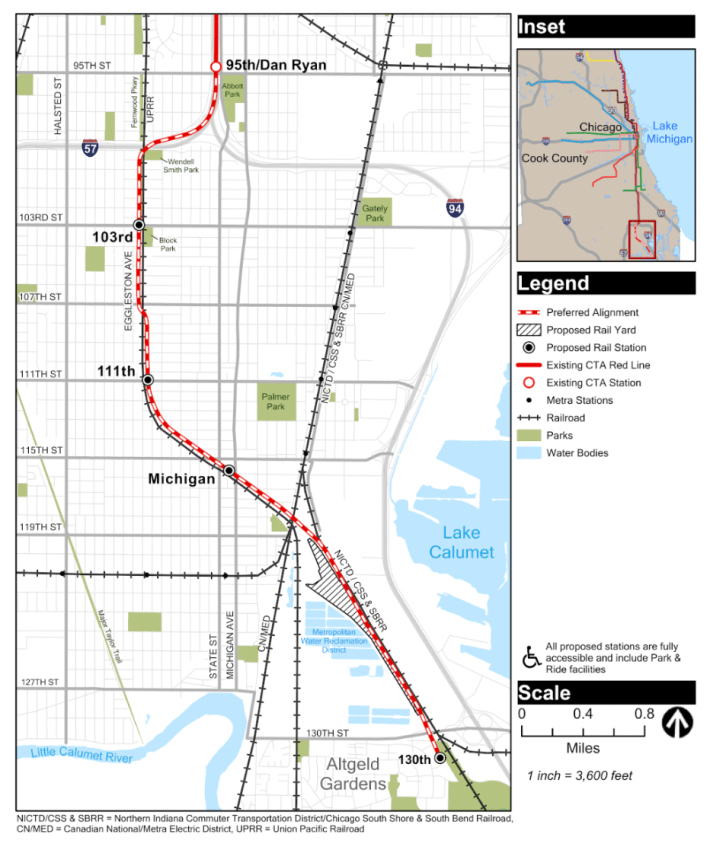
John Greenfield: Nik, you've gotten a lot of airtime in recent articles that have implied the Red Line Extension possibly should be canceled, because the project would be a financial trainwreck for the City of Chicago and for our transit system. And that's based on the long article that you did for A City That Works, which is partly run by one of our contributors, Richard Day.
Your article was referenced in a Chicago Tribune editorial about about the transit fiscal crisis, and some Crain's Chicago articles. One of those was a long-form piece by Ed Zotti. He made the argument that we [perhaps] shouldn't build this, that we should instead do stuff with the existing train lines, the South Shore Line and/or the Metra Electric District. He questioned the RLE plan in a Sun-Times op-ed in 2023 ["As Red Line extension advances, a cheaper way hides in plain sight"], so it wasn't a shock that he came out against this, but he basically used your article as evidence that we shouldn't build the Red extension. The Tribune editorial had a similar tone. And then Crain's columnist Greg Hinz and their editorial board and used your findings in a similar way.
So I was under the impression that you also feel that the CTA should consider canceling the Red Line Extension, because we can't afford to do it. However, when I recently spoke to you, you said that while you do feel that this project might be a financial disaster, you don't think they should cancel it, and even if you did think that, you don't think that's possible at this point. Do you want to provide a little more clarification on the stuff I just mentioned?
Nik Hunder: I'll start with how my research is being used. And I think the lesson is, I really didn't know who was going to or what was going to be used from that article. But the lesson I've learned is that you really can't control who cites your work. But yes, Ed Zotti, Crain's and the Tribune have kind of hopped on that chain because these are very business-oriented folks. I think when they were looking at this, they were going, well, yes, we were about to spend $5.75 billion on this project. And based on my reporting, yes, we are not getting a lot of [return on investment] in terms of its value, in terms of what we are physically getting.
But as we discussed on Saturday, yes, I don't believe that the Red Line Extension should be canceled. I think that's very ill-advised at this point. This is a project that has been promised for at least half a century. It's been passed over many times since the Seventies, and to once again get this close, and do all the work, and then to cancel it, would be a serious injustice to these communities.
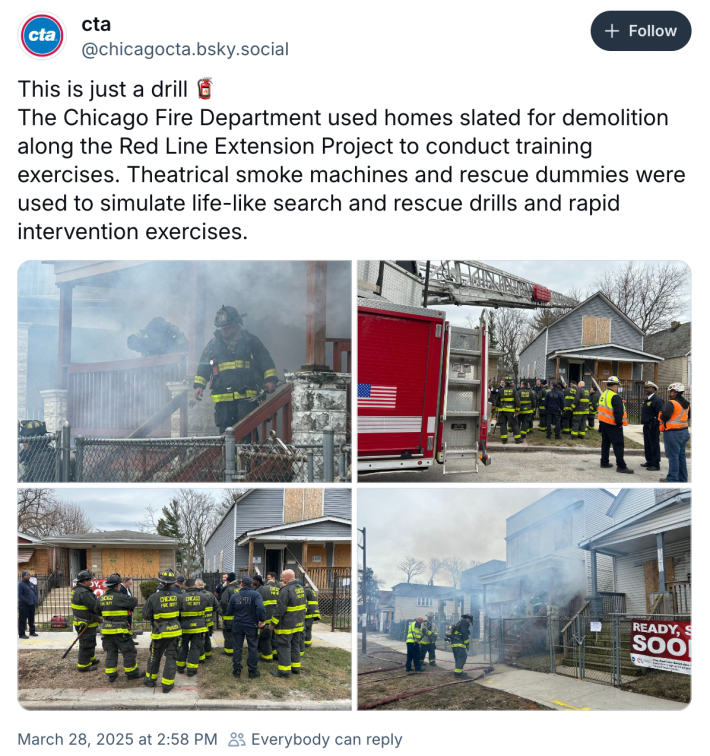
Doing the rail option was probably not our best option. Streetsblog highlighted that argument from August [Puranauth] one of the Toronto-based transit advocates. But if you go back and look at the 2009 feasibility study, if you look at specifically what bus rapid transit would have done for the area, it would have provided a very similar benefit and almost at equal amount of speed and stuff, especially if they had made the dedicated lanes.
JG: I remember that years ago [in 2013] Streetsblog Chicago cofounder Steven Vance did a bus tour that was looking at the idea of BRT on the Far South Side. Some of the community representatives there said they felt like they deserved more than bus rapid transit. They'd been promised rail, and they felt they deserved rail, so they saw bus rapid transit as a step down.
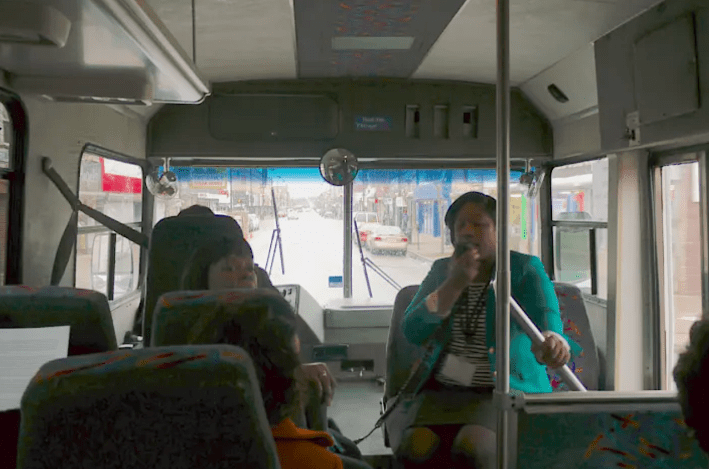
NH: The South Side residents that I've spoken to seem to have a variety of opinions. Some do want rails and stuff. But recently, I've been talking to – I don't know if I'm allowed to say his name, so I'm not going to – but I've been talking so a South Side resident who's been giving me the background from the 1980s on how they used to run bus service down there, which is crazy, because sometimes it was like upwards of like 20 buses per hour.
So it really does seem to depend on who you ask on the South Side, whether rail was worth it or not. I think there are some who are would rather have expanded BRT at this point, because it would provide them with more frequent service. And I do want to put the caveat there that CTA does have to run frequent service to the Red Line Extension to meet their grant agreement or they are at risk of losing their funding, or at least Federal Transit Administration trying to claw some of that back. During peak hours, that's about six-to-eight-minute headways. I don't know what the ridership is going to be, but they do have to provide reliable service to the Far South Side, and that was something that could both be accomplished with BRT and rail.
JG: So why do you think this project absolutely cannot be stopped, even if we wanted to stop it?
NH: I'm just going to run you through these three main areas. When the CTA got this money, they signed something called a Full Funding Grant Agreement that lays out all the terms that CTA must meet in order for the FTA to release those funds together. If you go and you look at the FFGA section two, A through C, basically, those lay out the terms, and they're kind of chopped into three main things: financial implications; expiration of the period of performance, which is how they're measuring success; and the actual justification there.
And we're going to step one back. There's the FTA Master Agreement, so that spells out all the reasons for terminations and why money is owed to grantees. And really, just in this you won't find a "we don't like it" clause, which is, seems to be the [Trump administration's] current argument for just canceling a lot of things. You've seen a lot of people have to go to court for it, but eventually they do win. There's decades of torts law back there.
We're gonna go one step higher. So if you look at the Code of Federal Regulations... there's a line in there that says payments per cost must not be withheld at any time during the period of performance, unless required by federal statute. In this case, there is no federal statute that would require funds to be withheld here. If [the CTA] were to sue this is what you would sue under, this pretense.
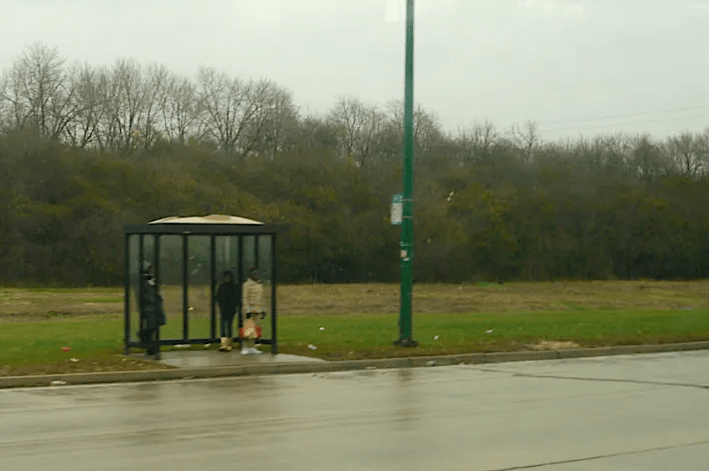
JG: This is the kind of project that the Trump administration would love to cancel. And it's an interesting case, because I think there are a lot of people in Chicago who would like to cancel this too...
NH: I don't think that's true. I don't think a lot of people actually want to cancel this. I think that you have a bunch of white men who are trying to cancel the project, who are just really mad about it.
Read Hunder's A City That Works post "The Red Line Extension's hidden costs" here.
Read Hunder's 2/2/25 Bluesky thread on RLE funding issues here. It starts, "I request that journos stop saying that the Red Line Ext. funding is at risk. That is 99% incorrect."

Did you appreciate this post? Streetsblog Chicago is currently fundraising to help cover our 2025-26 budget. If you appreciate our reporting and advocacy on local sustainable transportation issues, please consider making a tax-deductible donation here. Thank you.
